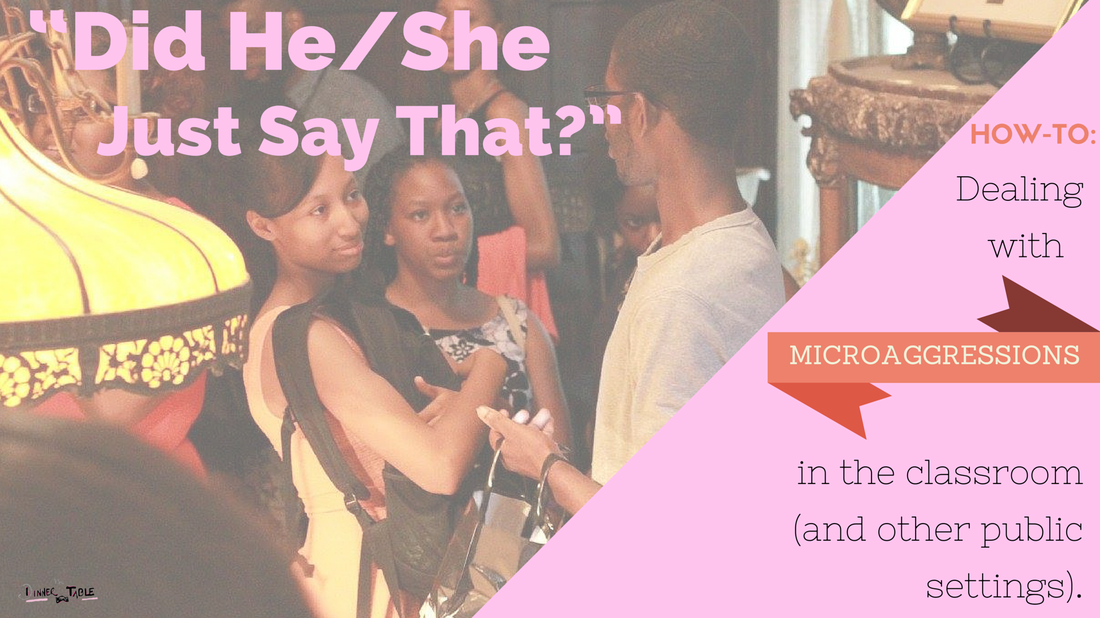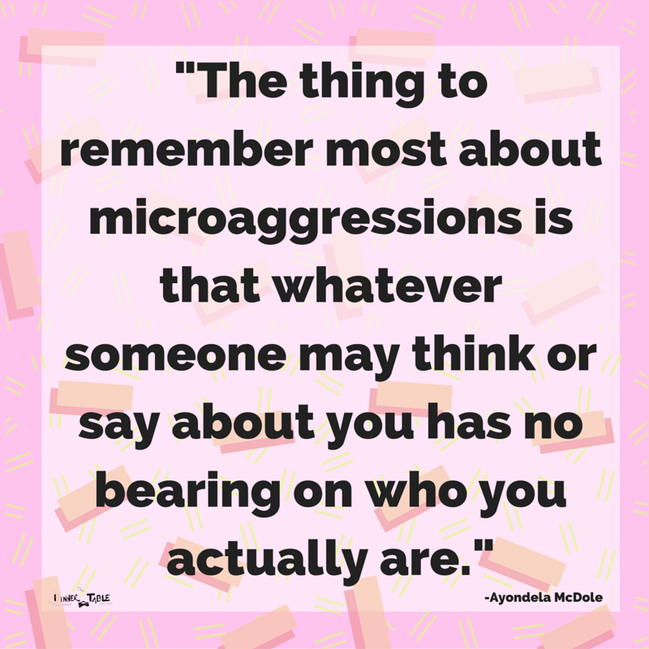|
So, you’re in class preoccupied with whether or not you’ve studied enough for the day’s exam or maybe you’ve been running late all day and when you finally get to class and set your bag down is when it happens: A student (in referring to a pop quiz perhaps) retorts, “This quiz is so gay” or perhaps while a teacher is struggling with a less than brand new projector screen a classmates declares, “This school is so ghetto.” You find yourself overcome with a combination of emotions including that of frustration, anger and insecurity even. What you have experienced is no doubt the sharp end of a microaggression or a microaggressive comment. Microaggressions are commonly defined as insults or dismissals often delivered by an oppressive group and made towards (or referencing) an oppressed group. How can you spot a microaggression? Well, spotting a microaggression is of course much easier when on the receiving end of said dismissive comments- usually they hurt. Being on the receiving end of comments that are designed to dismiss, stereotype, disregard and stigmatize often unearth feelings of anger and alienation. But what is the proper way to handle microaggressions? How do you gracefully withdraw from a dismissive situation with your self-esteem intact? The answer is there is no one way to respond to microaggressions much less a proper way to do it. Microaggressions are about alienating a group of people and making them feel inherently inferior, with that being said, it is not your job to assert your worthiness or declare your equality in any given situation. And while a microaggressive situation can be a teaching moment to all those involved it is in no way an oppressive group’s responsibility to inform and educate oppressing groups. Exhaustion is common when dealing with microaggressions because when feeling alienated and wronged a person (or people) can take on the role of representative for oppressed group. While this is a natural understanding- it is not required, not by a long shot. When dealing with microaggressions, you may feel perfectly comfortable in facilitating a larger conversation about the issue at hand and other times feel that having that conversation would be too much to handle- this is perfectly normal. But we must never forget that the feelings that arise from targeted comments are still indeed valid regardless how we choose to respond to them. Photo Courtsey of The Dinner Table Documentary-- Jalessa Montaque It is also important to understand that at times we also may make microaggressive comments in any given situation and we must remain receptive to the feedback that comes from delivering those kinds of statements. However, when a person expresses hurt in regards to our comments it is always beneficial to communicate without further offending the other. This is no doubt a beneficial talent of communicating that can be employed anywhere and at any time. A good rule of thumb is to avoid statements that generalize or single out a group of people and avoid judgement statements about people we don’t know such as, “He or she is stupid” or “They need to get over it”. More times than not microaggressive comments are a part of a much larger system designed to keep people disconnected. Systems such as racism, sexism, classism are in place with one group of people set up to be inferior and while these issues will not be fixed overnight it would be nice to be able to dialogue about them in a way that drives consciousness in the direction of unity rather alienation. The thing to remember most about microaggressions is that whatever someone may think or say about you has no bearing on who you actually are. Written By: Ayondela McDole
2 Comments
Yolanda Shaw
3/3/2016 08:04:40 pm
Bravo! Great advice on how to handle these situations!
Reply
Ayondela
4/1/2016 03:26:02 pm
Thanks so much!
Reply
Leave a Reply. |
Archives
May 2022
|



 RSS Feed
RSS Feed